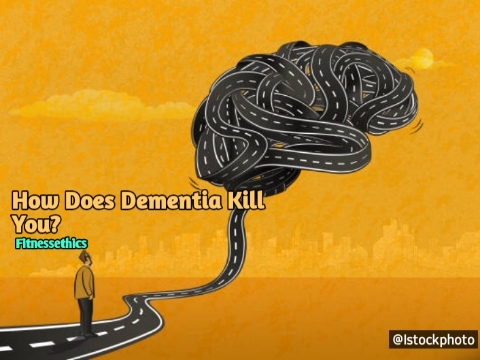Dementia is a progressive neurological disorder that primarily affects older individuals, leading to a decline in cognitive function and memory loss. While dementia itself may not directly cause death, the complications associated with the condition can significantly impact overall health and ultimately contribute to mortality. In this article, we will explore the mechanisms through which dementia can lead to death and the factors involved.
Does Dementia Kill You?
Dementia itself is not considered a direct cause of death. However, it can significantly increase the risk of mortality. As dementia progresses, individuals often experience a decline in their ability to carry out basic functions such as eating, swallowing, and maintaining personal hygiene. This loss of independence can result in malnutrition, dehydration, and infections, which can be life-threatening if left untreated.
Moreover, dementia can lead to complications such as pneumonia. As the disease progresses, individuals may develop difficulty swallowing, leading to the inhalation of food or liquids into the lungs. This can cause aspiration pneumonia, a condition that can be particularly dangerous for individuals with compromised immune systems.
In the later stages of dementia, individuals may become more susceptible to falls and accidents, which can result in severe injuries, including fractures and head trauma. These injuries can have serious consequences and increase the risk of mortality.
How Long Can You Live with Dementia?
The life expectancy of individuals with dementia varies depending on various factors, including the type of dementia, overall health, age at diagnosis, and access to medical care and support. On average, people with dementia live for around 8 to 10 years after the initial diagnosis. However, some individuals may live with dementia for as long as 20 years or more.
It’s important to note that this timeframe is an estimate and can vary widely. Some individuals may experience a more rapid decline in health, while others may have a slower progression of the disease. Additionally, individuals with other underlying health conditions may have a shorter life expectancy.
Can Dementia be Cured?
Currently, there is no known cure for most types of dementia, including the most common form, Alzheimer’s disease. Dementia is typically a progressive and irreversible condition. However, there are treatments available that can help manage symptoms, slow down the progression of the disease, and improve the quality of life for individuals with dementia.
Drug therapies such as cholinesterase inhibitors and memantine are often prescribed to individuals with Alzheimer’s disease to help manage cognitive symptoms. These medications can temporarily improve memory and thinking abilities, but they do not stop or reverse the underlying disease process.
Non-pharmacological approaches, such as cognitive stimulation therapy and music therapy, have also shown promise in enhancing cognitive function and reducing behavioral symptoms associated with dementia.
While a cure for dementia remains elusive, ongoing research efforts are focused on understanding the underlying mechanisms of the disease and developing potential treatments. Early detection and diagnosis, along with appropriate medical and social support, can make a significant difference in managing the symptoms and improving the overall well-being of individuals living with dementia.
Conclusion
Dementia itself may not directly cause death, but it significantly increases the risk of mortality due to its impact on overall health and functional abilities. Complications such as malnutrition, dehydration, infections, pneumonia, and injuries can contribute to a decline in health and ultimately lead to death. Although there is currently no cure for dementia, various treatment options are available to manage symptoms and improve the quality of life for individuals living with the condition. Ongoing research aims to advance our understanding and develop more effective interventions for dementia in the future.
[starbox]



